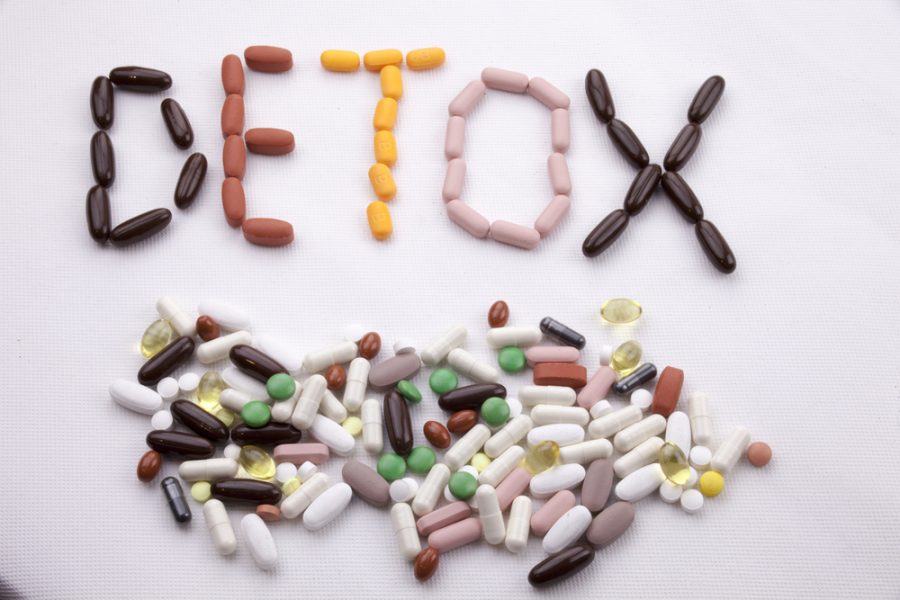
Drug detox is the first stage of recovery from substance use disorder. Drug and alcohol abuse changes a person’s brain creating a wide range of mental and physical health problems. During drug detox, people gradually remove addictive substances from their system in a safe and supportive environment. These drug detox treatments are essential for overcoming life-threatening dependence safely and effectively. If you’re asking yourself, “Where can I find drug detox near me?” read on to discover the answers to all your addiction and treatment questions.
Table of Contents
What Is Drug Detox?
Detox is refraining from drug or alcohol use until the substance has completely left the body. This can take days or even weeks, depending on the substance and the nature of the abuse. For example, those who “binged” the substance may have longer detox periods than those who used it consistently. Since many people develop a physical dependence to a substance, drug detox involves removing substances that people depend on to feel “normal.” Consequently, individuals may experience major withdrawal symptoms during alcohol and drug detox.
What Drugs Cause Withdrawal?


It should come as no surprise that most commonly abused drugs have moderate to severe withdrawal effects. That’s because all of these substances alter the brain’s chemistry and the central nervous system, changing the way you feel and behave. When these substances are used to excess, stopping usage can cause withdrawal symptoms. Substances that cause withdrawal include:
- Alcohol
- Opioids, including heroin, codeine, morphine, oxycodone, Vicodin, and others.
- Stimulants such as methamphetamine and cocaine
- Benzodiazepines including Ativan, Klonopin, and Xanax
- Sleeping medications like Ambien and Lunesta
Not everybody has the same withdrawal symptoms. However, everyone can suffer side effects during the detox process, which is why medical supervision is essential. Finally, notice how some of these are prescription drugs. Be aware that even medications prescribed for legitimate reasons can cause addiction and withdrawal effects.
The Types of Drug and Alcohol Detox
There are many forms of drug and alcohol detox. Most detox methods can be very difficult for individuals and can include unpleasant and often serious withdrawal symptoms. Common types of detox include:
- Medical Detox: professional, treatment-based detox where an individual stays at a rehabilitation facility or hospital. Symptoms are managed by medical and additional professionals. In some cases, they may provide medication to help reduce withdrawal effects along with mental health support.
- Drug Tapering: involves people using less of a substance over time until they no longer use it. Tapering can reduce the effects of withdrawal substances, however, it can be dangerous and thus should only be done under medical supervision. For example, some physicians use suboxone to help people taper off of opioids because, while it’s an opioid, it does not give a high in normal doses.
- Rapid detox: In cases of severe and dangerous addiction, a person can be put under anesthesia and have the drugs flushed from their system. Patients can avoid the most severe withdrawal symptoms, but some may still occur. This procedure must be done at a medical facility that is equipped to handle advanced needs.
- At-Home Detox: when a person begins detoxification at home. This method can be dangerous, because when done unsupervised, people are seldom prepared to deal with the symptoms of withdrawal.
Be aware that the last method is both highly dangerous and ineffective. Successful drug detox typically requires medical supervision in a rehab facility.
The Dangers of Unsupervised Detox
Individuals suffering from severe substance use disorder can have severe withdrawal effects when quitting “cold turkey” or without supervision. There are both physical and psychological dangers of detox. In cases of severe symptoms, individuals may hurt themselves or pose a threat to others. For this reason, it’s better to have the support of medical professionals who can help support one’s needs not only for safe detox, but for successful long term recovery.
One of the most serious consequences of drug and alcohol detox is delirium tremens (DT). This severe effect causes tremors, extreme agitation, and high blood pressure within the first 24-48 hours after stopping alcohol use. It’s deadly as well with a nearly 40% mortality rate when untreated.
Side Effects of Detox
Addictive substances cause changes in the brain affecting thoughts, emotions, and behaviors. When a person requires these substances on a daily basis, detoxing may cause side effects such as:
- Unusual, unpredictable behavior
- Pain, particularly if using a substance to suppress pain
- Psychosis symptoms such as paranoia, delusions, and hallucinations
- Suicidal thoughts or actions
These serious side effects are why medical supervision is essential during the detox process.
Withdrawal Symptoms
Detox and withdrawal are very much two sides of the same coin. During the detox process, individuals will go through withdrawal leading to a variety of different symptoms. Withdrawal symptoms generally include the following:
- Anxiety
- Shaking
- Insomnia
- Depression
- Changes in heart rate and blood pressure
- Mood changes
- Muscle aches
- Nausea
To manage symptoms, medical professionals may recommend medications that can either help to reduce cravings or stabilize individuals to smooth out the withdrawal process. However, these treatments are up to the discretion of healthcare professionals who will determine whether or not this is a safe and suitable method for a particular patient.
What Happens After Detox?
Detox is the first step on the road toward long-term recovery and sobriety. After detox, many people are still at risk of relapse. For this reason, individuals must undergo additional therapy to not only prevent relapse, but also to identify underlying triggers for what prompted substance use in the beginning.
There are different types of care depending on the needs of the individual. For example, some people benefit from inpatient treatment programs at rehab centers. These empower individuals with settings free from distraction and temptations so they can focus on recovery. They’ll work with a medical team, support staff, and peers to overcome the psychological and physical effects of addiction and abuse.


Ultimately, people work towards an outpatient care strategy after completing these initial phases. Outpatient care is the final piece of the puzzle for lifelong sobriety and health.
Drug Detox Near Me: What Do I Need to Know?
Comprehensive drug detox is possible. When selecting programs, look for ones that focus on comprehensive care. The goal isn’t just a quick detox, but long-term support that addresses both the addiction and underlying causes. This is the best way for you to not only quit abusing substances, but stay sober for the rest of your life.
Look for treatment facilities that offer these types of support:
- Integrative and interdisciplinary care
- 24/7 medical and clinical support
- Mental health counseling
- Discharge and long term planning
- Spiritual guidance
For more information on our faith-based programs, connect with one of our specialists today. Our Christian recovery specialists are here to help you on your journey to sobriety. We are here to provide you not only with the latest in medical care but also the support and nourishment of a spiritual community. In Christ, all things are possible. Speak with one of our care team members today to see we can provide you with the tools you need to overcome addiction.
We Can Help You
The Christian Recovery Program at The Blackberry Center in St. Cloud, Florida specializes in dealing with the rooted issues underlying substance use, abuse, addiction, and codependency. While we are committed to a Christ-centered treatment approach, we also utilize doctors and clinical specialists to complement that faith-based care.
We hope to provide a safe atmosphere where people feel the love of Jesus and each other. In addition, our clinical staff have the highest qualifications to treat trauma and deeper-rooted issues. Reach out to us today by calling 1-844-232-6151 or filling out this contact form.
The post Where Can I Find Drug Detox Near Me? appeared first on Christian Recovery Program.
Source
Original Author: Get Christian Recovery

